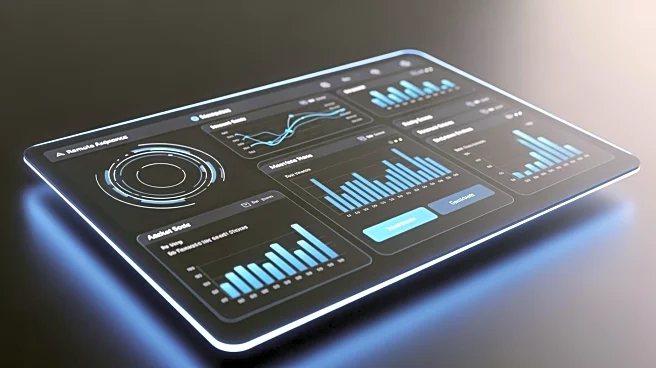What's Happening?
The global market for remote workforce monitoring tools is experiencing rapid growth, as detailed in a recent study by HTF Market Intelligence. The report highlights key players such as Teramind, ActivTrak, and others, noting a projected compound annual
growth rate (CAGR) of 16% from 2025 to 2032. This expansion is fueled by increased adoption of remote work, necessitating tools that track employee productivity, activity, and compliance. The market is segmented by type, including activity analytics and time tracking, and by application, such as payroll validation and security. North America is currently the dominating region, while Asia Pacific is the fastest-growing market.
Why It's Important?
The growth of the remote workforce monitoring tools market is significant as it reflects the broader shift towards remote work environments. This trend impacts various sectors, including HR, IT, and project management, by integrating monitoring tools to enhance productivity and compliance. Companies stand to benefit from improved efficiency and accountability, while employees may face privacy concerns. The expansion into small and medium-sized businesses and emerging markets presents opportunities for vendors to increase their market share. Additionally, the integration of AI-driven insights and analytics could further differentiate offerings and drive innovation in workforce management.
What's Next?
As the market continues to expand, companies are likely to focus on developing more sophisticated monitoring solutions that address privacy concerns and enhance employee engagement. The integration of these tools with existing HR and IT systems will be crucial for seamless operation. Vendors may also explore subscription-based models to generate recurring revenue. Regulatory compliance across different regions will remain a critical challenge, requiring ongoing adaptation to local laws and standards. The market's growth trajectory suggests continued investment in AI and analytics to provide deeper insights into workforce performance.
Beyond the Headlines
The rise of remote workforce monitoring tools raises ethical questions about employee privacy and the balance between productivity tracking and personal freedom. Over-monitoring could potentially lead to decreased morale and engagement, highlighting the need for companies to implement these tools thoughtfully. The long-term implications may include shifts in workplace culture, as remote work becomes more normalized and monitoring tools become integral to business operations. Companies will need to navigate these changes carefully to maintain a positive work environment.















